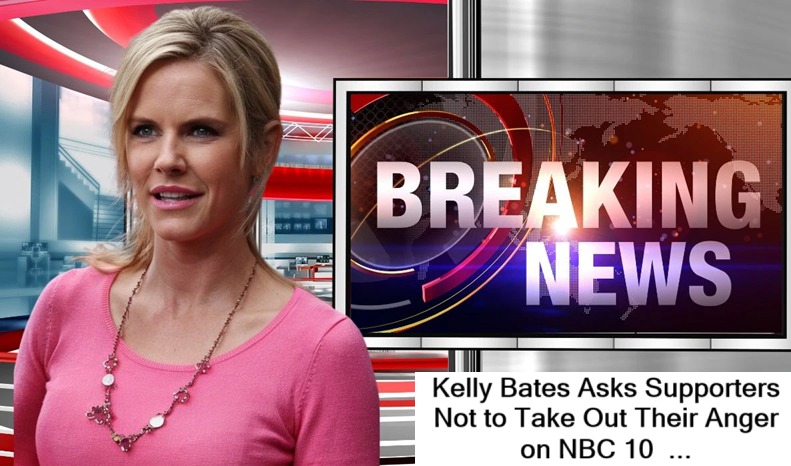When longtime meteorologist Kelly Bates parted ways with NBC 10 (WJAR) in Providence, Rhode Island, the reaction was swift and passionate. Fans were stunned. Many shared their frustration online—and some went a step further, directing blame toward station employees still on the air.
But in a moment marked by grace, Bates publicly urged her supporters: please don’t take out your anger on the NBC 10 newsroom staff. Her plea wasn’t just a defense of colleagues—it was a timely reminder of how we can advocate with empathy instead of aggression.
A Trusted Voice and an Unexpected Goodbye
Kelly Bates’ Longtime Presence in Rhode Island
For more than 17 years, Kelly Bates delivered daily forecasts with clarity, warmth, and reliability. Viewers came to rely on her steady voice during hurricanes, nor’easters, and quiet weekend mornings alike.
Over time, she became more than a meteorologist—she was a familiar face in the living rooms of southern New England. For many, she symbolized community, trust, and calm in uncertain moments.
The Sudden Exit That Sparked Outrage
By the end of 2021, audiences began to realize she was no longer appearing on television. Shortly afterward, Bates confirmed via Twitter that she had left the station. Behind the scenes, she faced a difficult decision: accept a limited contract with fewer hours and minimal overtime—or walk away from the job she loved.
According to the union representing station employees, the offer from Sinclair-owned NBC 10 was rigid: a modest pay raise paired with reduced earning potential due to cutbacks in fill-in work. Bates, who had been working part-time since being scaled back a decade earlier, chose to step away.
Her departure stirred thousands of reactions across social media. Fans posted messages of support, gratitude and in some cases, directed their dismay toward the remaining team at NBC 10.
A Graceful Plea for Kindness
Bates’ Public Appeal to Her Fans
In the days that followed, Bates took to Facebook to share a deeply personal message. Her words were both appreciative and firm:
“She urged her supporters to treat the WJAR newsroom team with kindness, expressing heartfelt thanks: “Your loyalty has deeply moved me beyond words.”
It was a remarkable moment of leadership—she acknowledged her supporters’ passion while drawing a boundary: stand with me, but don’t attack others.
Harassment Hits Close to Home
Despite her appeal, several NBC 10 employees, particularly meteorologists, began receiving aggressive messages from upset viewers. One of them, Christina Erne, publicly shared a cruel comment accusing her of trying to “replace” Bates and mocking her appearance.
Erne responded clearly:
“She made it clear that disrespect wouldn’t be tolerated, warning that anyone making off-topic or rude remarks unrelated to her weather reporting would be immediately blocked.”
This backlash revealed just how easily public frustration can morph into personal attacks—and how critical it is for public figures like Bates to speak up when lines are crossed.
The Broader Issues Behind the Headlines
A Newsroom Under Strain
Bates’ departure also highlighted broader concerns at NBC 10. Multiple current and former employees described low morale, limited growth, and stagnant pay—especially among younger reporters sent out to cover demanding field stories.
These systemic issues weren’t caused by one event. But her exit seemed to pull back the curtain on challenges facing local journalism, where burnout and underappreciation are becoming more common.
Age, Image, and the Pressures of Public Work
Reflecting humorously on what lay ahead, Bates tweeted that at 49 and not fitting the industry’s image standards, she doubted her TV days would continue.
The line resonated deeply with many. Although she clarified that her exit wasn’t about body image, her words sparked discussions about ageism and appearance standards in broadcast media.
Fellow former NBC 10 host Lindsay Iadeluca also stepped in, clarifying that her own recent exit had nothing to do with image or internal drama—just a personal choice for change. Her comments echoed Bates’ effort to steer the conversation back toward compassion and facts.
From Exit to Renewal
A New Beginning at ABC6
Several months after her departure, Bates returned to local TV at WLNE ABC6 as a weekend meteorologist and science reporter. When she returned, the community greeted her warmly and with great support.
She wrote on Facebook:
“Just when things seemed hopeless, everything changed for the better—and I truly feel incredibly fortunate,” she said.
Her comeback was more than a professional pivot—it was a personal triumph. Bates found a station that aligned with her values and rekindled the joy that comes from serving her community on her terms.
Support That Endures
Importantly, the supporters who once mourned her exit now celebrated her new chapter. Because Bates had handled her transition with maturity and kindness, she preserved her bond with her audience—and widened the path for respectful dialogue in the process.
What Kelly Bates’ Story Teaches Us
1. Grace Can Change the Tone
Even when emotions run high, calm and compassionate leadership can defuse conflict. Bates showed us how to take the high road without compromising one’s voice.
2. Advocacy Without Aggression Is Possible
True support doesn’t require tearing others down. Fans can rally around a cause or a person without hurting those left behind.
3. Every Public Figure Is Still a Person
Those on our screens are still human. When we speak to them—or about them—we should remember the impact of our words.
4. A Door Closing Doesn’t Mean the End
Bates’ journey is a testament to resilience. What seemed like a loss became a stepping stone to something more fulfilling.
Conclusion
When Kelly Bates asked her supporters not to take out their anger on NBC 10, she modeled what it means to lead with empathy in a moment of uncertainty. She honored her fans’ loyalty while defending her colleagues—proving that advocacy doesn’t have to come at someone else’s expense.
In an era of reaction-first communication, Bates offered something rare: pause, perspective, and poise.
A Gentle Next Step
The next time you feel compelled to speak up—whether about local media, leadership, or someone you admire take a moment to ask: Is this lifting someone up or tearing someone down?
Like Kelly Bates, we can all choose advocacy rooted in compassion—and that’s the kind of voice that truly leaves a mark.






